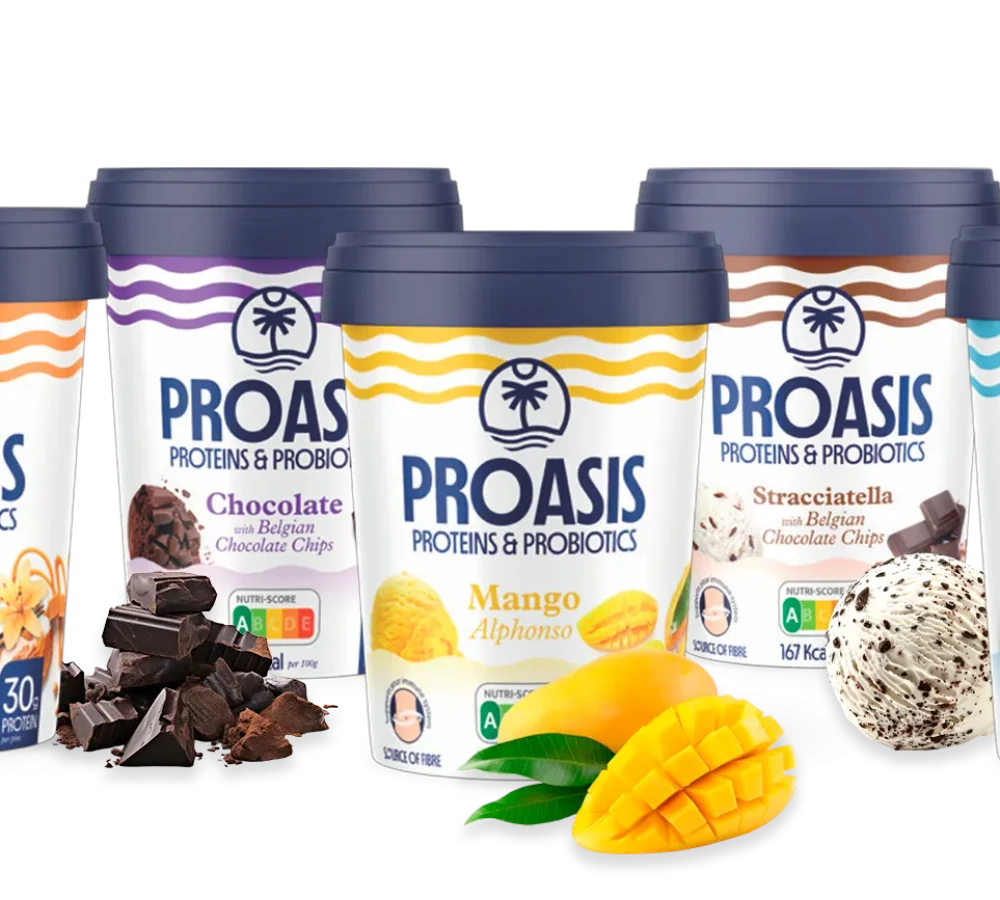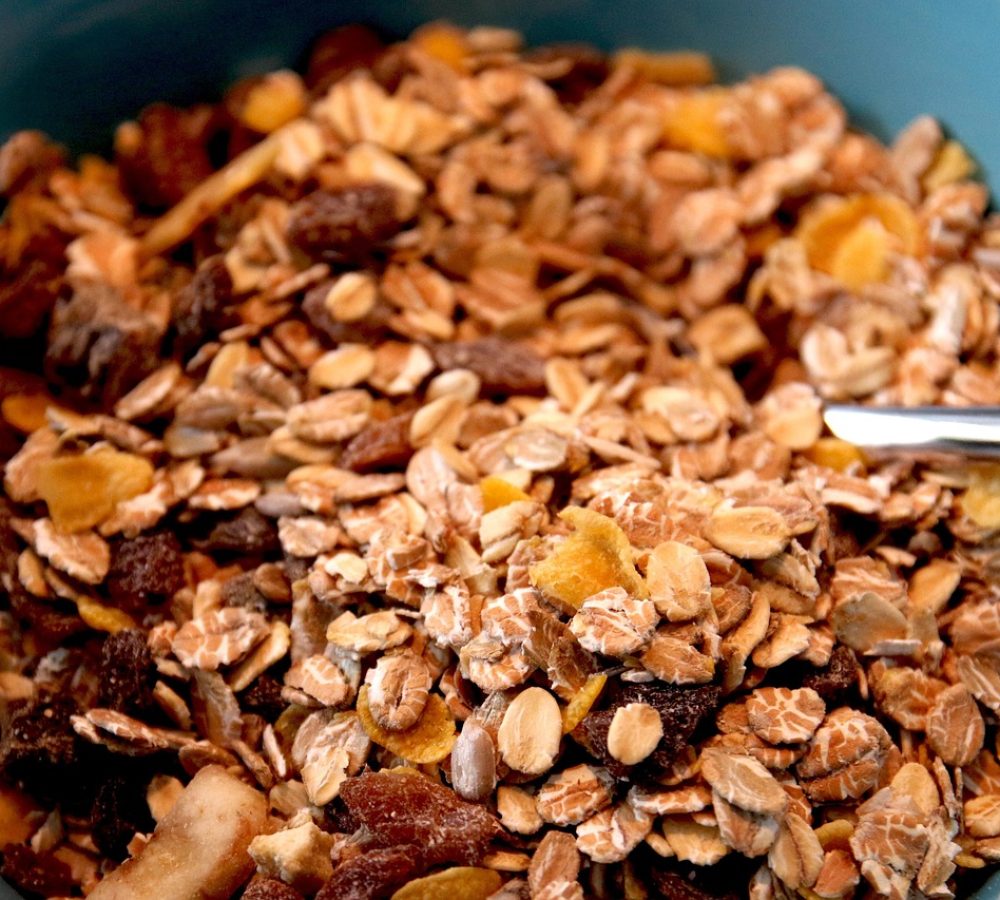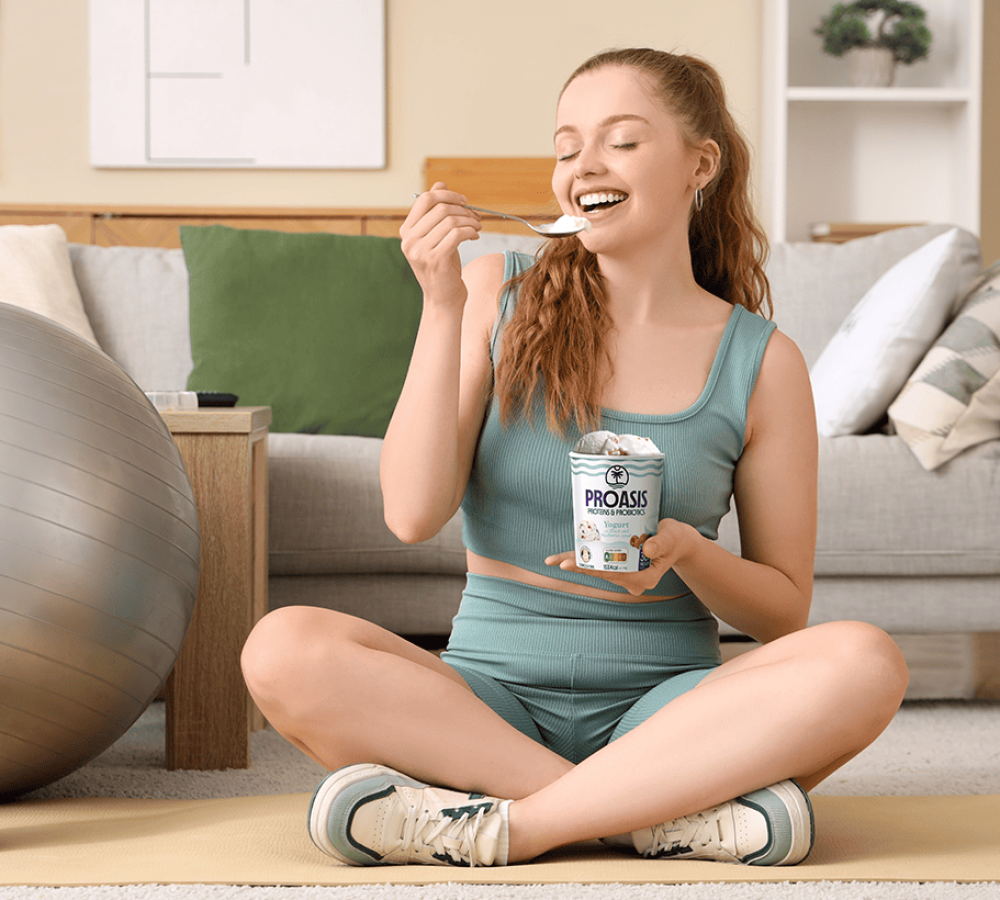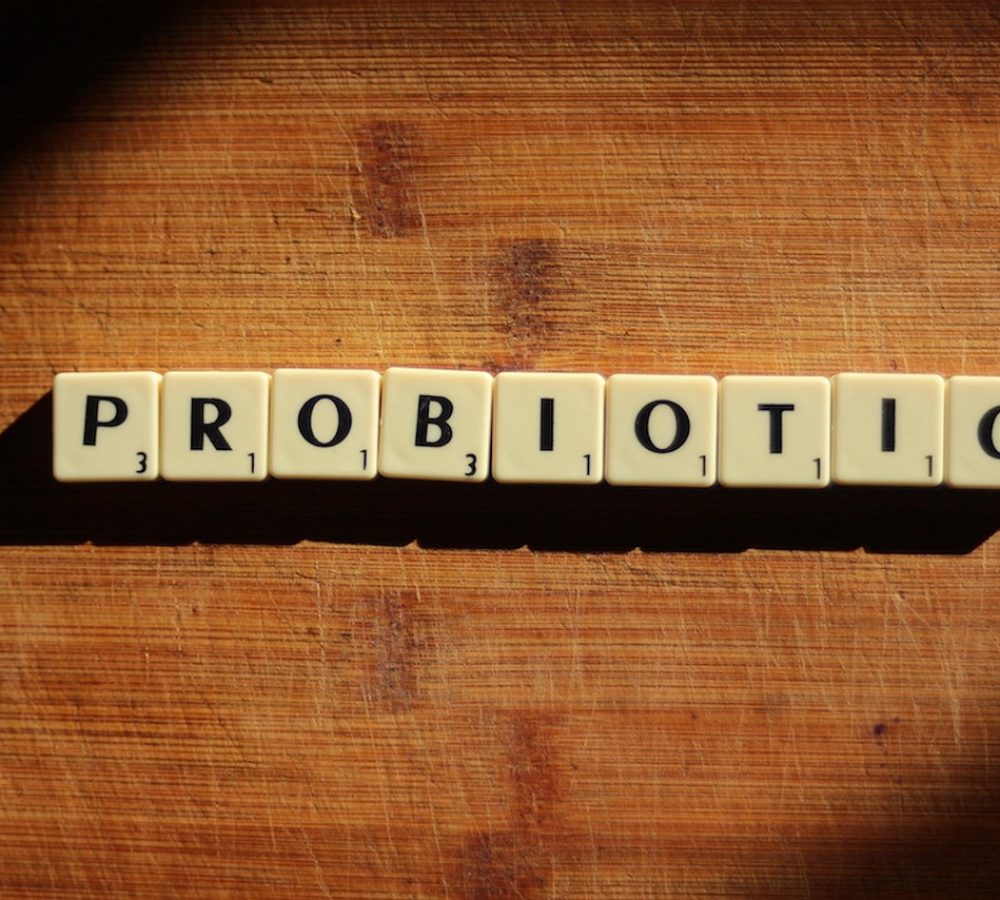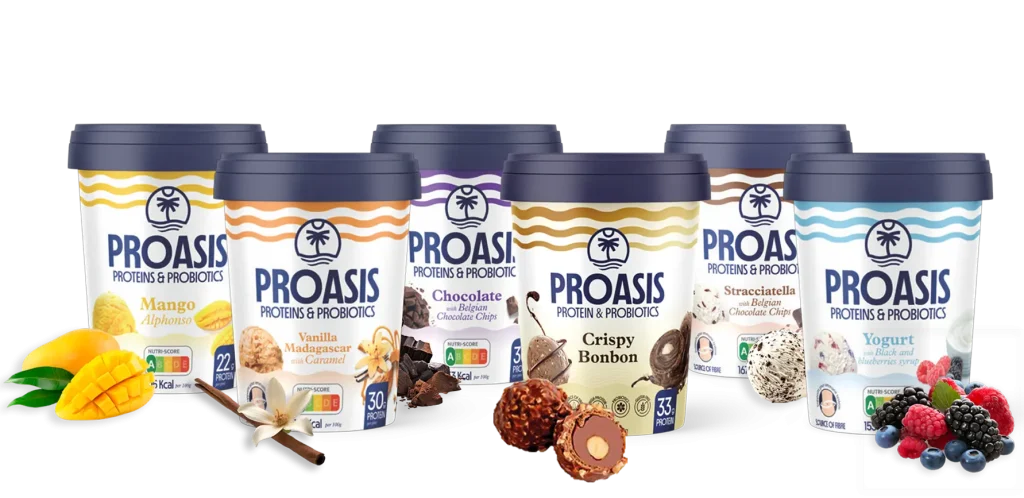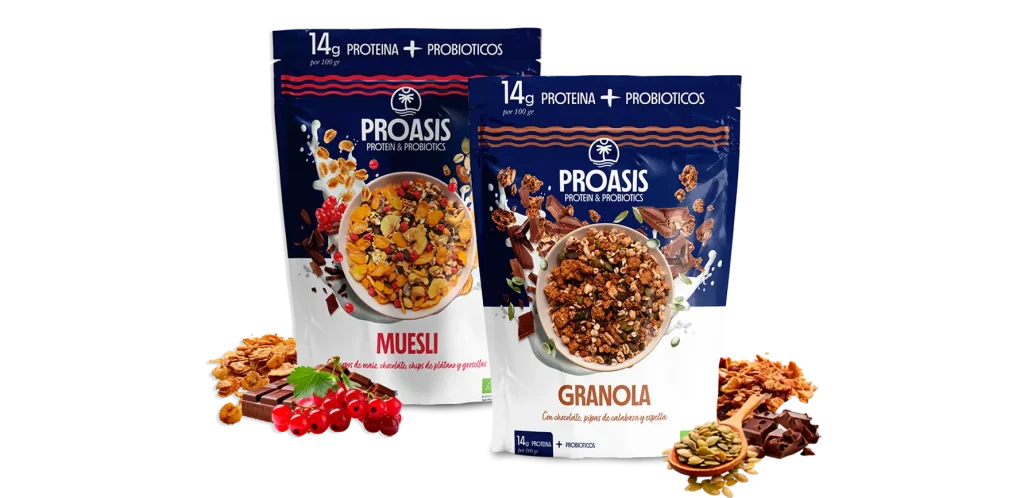Have you ever wondered how to improve your sports performance with probiotics? They can be your key allies on the path to better performance. Today, more than ever, we know that overall well-being is essential to staying active and healthy. Undoubtedly, probiotics benefit our gut health, but their positive impact goes beyond good digestion. For those of us looking to enhance our performance with probiotics, these small allies play a crucial role in muscle recovery and immune system support.
According to the Food and Agriculture Organization of the United Nations and the World Health Organization, the definition of probiotics is as follows. They are live microorganisms that, when administered in adequate amounts, confer a health benefit on the host. So, consider incorporating probiotics for athletes into your routine to boost performance and overall health.
How can probiotics for athletes help improve sports performance?
Including probiotics in your diet can be a vital step toward a healthy and active lifestyle. By maintaining balance in the gut microbiota, they help optimize the absorption of essential nutrients and improve immune function. This is crucial for maximizing your energy and speeding up post-exercise recovery.
The connection between the gut and physical performance
Did you know that gut health can be key to your performance? A healthy gut improves the absorption of nutrients like proteins, vitamins, and minerals, which are essential for generating energy and increasing endurance during exercise. Moreover, proper digestion of proteins is essential for muscle growth and maintenance. The gut microbiota plays a key role in the digestive process and metabolic regulation.
What’s more, a balanced gut helps reduce oxidative stress and inflammation, which can prevent injuries and improve your post-workout recovery. As a result, taking care of your gut health will not only make you feel better on the inside but will also enhance your physical results.
Effects of probiotics on muscle recovery
For athletes interested in maximizing their performance with probiotics for athletes, this is a smart nutritional strategy that supports both your gut and your muscles. Scientific evidence indicates that they positively affect performance-related aspects such as:
- Fatigue
- Muscle soreness
- Body composition
- Cardiorespiratory fitness
Probiotic foods and supplements to include in your routine
Including live microorganisms in your diet boosts the immune system and supports muscle tissue function. Foods like plain yogurt, kefir, or sauerkraut are natural sources. However, for those looking to optimize intake, probiotic supplements are a practical and effective option. In addition, some innovative products combine proteins and probiotics, offering a double benefit for athletes like you and making a difference in your physical performance and overall well-being.
Improve performance with probiotics: Probiotic yogurts and ice creams
These products are delicious and healthy alternatives for those who want to add probiotics to their diet without sacrificing flavor. You’ll find options like Yogurt with forest fruit syrup or low-calorie ice creams in exquisite flavors. We also offer Chocolate with Belgian chocolate chips or Mango Alphonso, which not only satisfy your sweet cravings but also provide benefits. They are designed with athletes in mind who value both sports performance and enjoying their meals. Incorporating these foods into your daily routine helps keep you active and supports a healthy lifestyle without worrying about calorie content.
Probiotic cereals and granolas
Adding tasty cereals and probiotic granolas to your daily diet can be an excellent way to enhance your performance. Granola and enriched muesli with live microorganisms are perfect options for breakfast or as a snack before training.
Moreover, they help keep the gut flora in balance, improving digestion and increasing your energy levels. According to the National Scientific Research Council, CSIC, gut microbiota interacts with various organs and systems, regulating multiple metabolic, immune, and neural functions.
Tips to improve sports performance with probiotics in your diet
To maximize the benefits of probiotics in your sports activity, it’s important to follow a few key tips. First, consult a healthcare professional to identify which ones are most effective based on your specific needs. That way, you can determine the most suitable dose and type for you. Second, boost muscle recovery with proteins and probiotics, along with other essential nutrients.
Combining these microorganisms with protein-rich foods helps repair and build muscle mass after exercise. Also, make sure to maintain a balanced diet that includes fruits, vegetables, and whole grains to optimize absorption.
In short, improving your sports performance with probiotics is possible by integrating these products into your daily diet. We encourage you to try our cereals and granolas enriched with microorganisms and experience the benefits for yourself.
References
- Hill, C., et al. “”Expert consensus document: The International Scientific Association for Probiotics and Prebiotics consensus statement on the scope and appropriate use of the term probiotic””. Nature Reviews Gastroenterology & Hepatology, June 2014, 11(8). DOI:10.1038/nrgastro.2014.66. Available at: Researchgate.net.
- Probiotics in food: Health and nutritional properties and guidelines for evaluation. Available at: Openknowledge.fao.org.
- Mirella Di Dio, et al. Study on the impact of probiotics on sports performance. Int J Environ Res Public Health. 2023 Jan 26;20(3):2226. DOI: 10.3390/ijerph20032226. Available at: Pmc.ncbi.nlm.nih.gov.
- The connection between the gut and the brain can protect mental health. CSIC, March 27, 2023. Available at: Csic.es.
- Julia Álvarez, et al. Gut microbiota and health. Gastroenterología y Hepatología, Vol. 44. No. 7. Pages 519-535 (August – September 2021). Available at: Elsevier.es.
- Rita de Cássia Stampin, et al. Modulation of gut microbiota, nitrogen compound control and inflammation by pre/probiotics in chronic kidney disease: a systematic review. Hospital de nutrición. April 27, 2018;35(3):722-730. 2008.
- Sanders, M.E., et al. Probiotics and prebiotics in intestinal health and disease: from biology to the clinic. Nat Rev Gastroenterology & Hepatology. October 2019;16(10): 605-616. doi: 10.1038/s41575-019-0173-3. Available at: Pubmed.ncbi.nlm.nih.gov.
- Gibson, G.R., et al. “”Dietary modulation of the human colonic microbiota: updating the concept of prebiotics. Nutrition Research Reviews. December 2004;17(2):259-75. 2004. DOI: 10.1079/NRR200479. Available at: https://pubmed.ncbi.nlm.nih.gov/19079930/.

